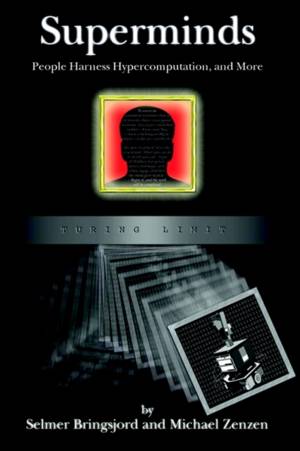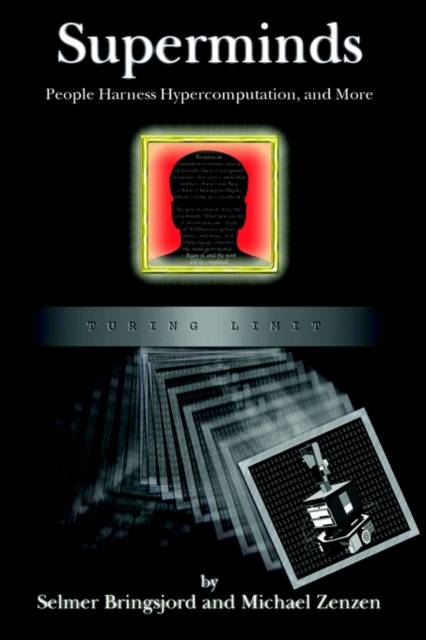
- Afhalen na 1 uur in een winkel met voorraad
- Gratis thuislevering in België vanaf € 30
- Ruim aanbod met 7 miljoen producten
- Afhalen na 1 uur in een winkel met voorraad
- Gratis thuislevering in België vanaf € 30
- Ruim aanbod met 7 miljoen producten
Zoeken
€ 95,45
+ 190 punten
Uitvoering
Omschrijving
This is the first book-length presentation and defense of a new theory of human and machine cognition, according to which human persons are superminds. Superminds are capable of processing information not only at and below the level of Turing machines (standard computers), but above that level (the "Turing Limit"), as information processing devices that have not yet been (and perhaps can never be) built, but have been mathematically specified; these devices are known as super-Turing machines or hypercomputers. Superminds, as explained herein, also have properties no machine, whether above or below the Turing Limit, can have. The present book is the third and pivotal volume in Bringsjord's supermind quartet; the first two books were What Robots Can and Can't Be (Kluwer) and AI and Literary Creativity (Lawrence Erlbaum). The final chapter of this book offers eight prescriptions for the concrete practice of AI and cognitive science in light of the fact that we are superminds.
Specificaties
Betrokkenen
- Auteur(s):
- Uitgeverij:
Inhoud
- Aantal bladzijden:
- 339
- Taal:
- Engels
- Reeks:
- Reeksnummer:
- nr. 29
Eigenschappen
- Productcode (EAN):
- 9781402010958
- Verschijningsdatum:
- 31/03/2003
- Uitvoering:
- Paperback
- Formaat:
- Trade paperback (VS)
- Afmetingen:
- 161 mm x 244 mm
- Gewicht:
- 657 g

Alleen bij Standaard Boekhandel
+ 190 punten op je klantenkaart van Standaard Boekhandel
Beoordelingen
We publiceren alleen reviews die voldoen aan de voorwaarden voor reviews. Bekijk onze voorwaarden voor reviews.











